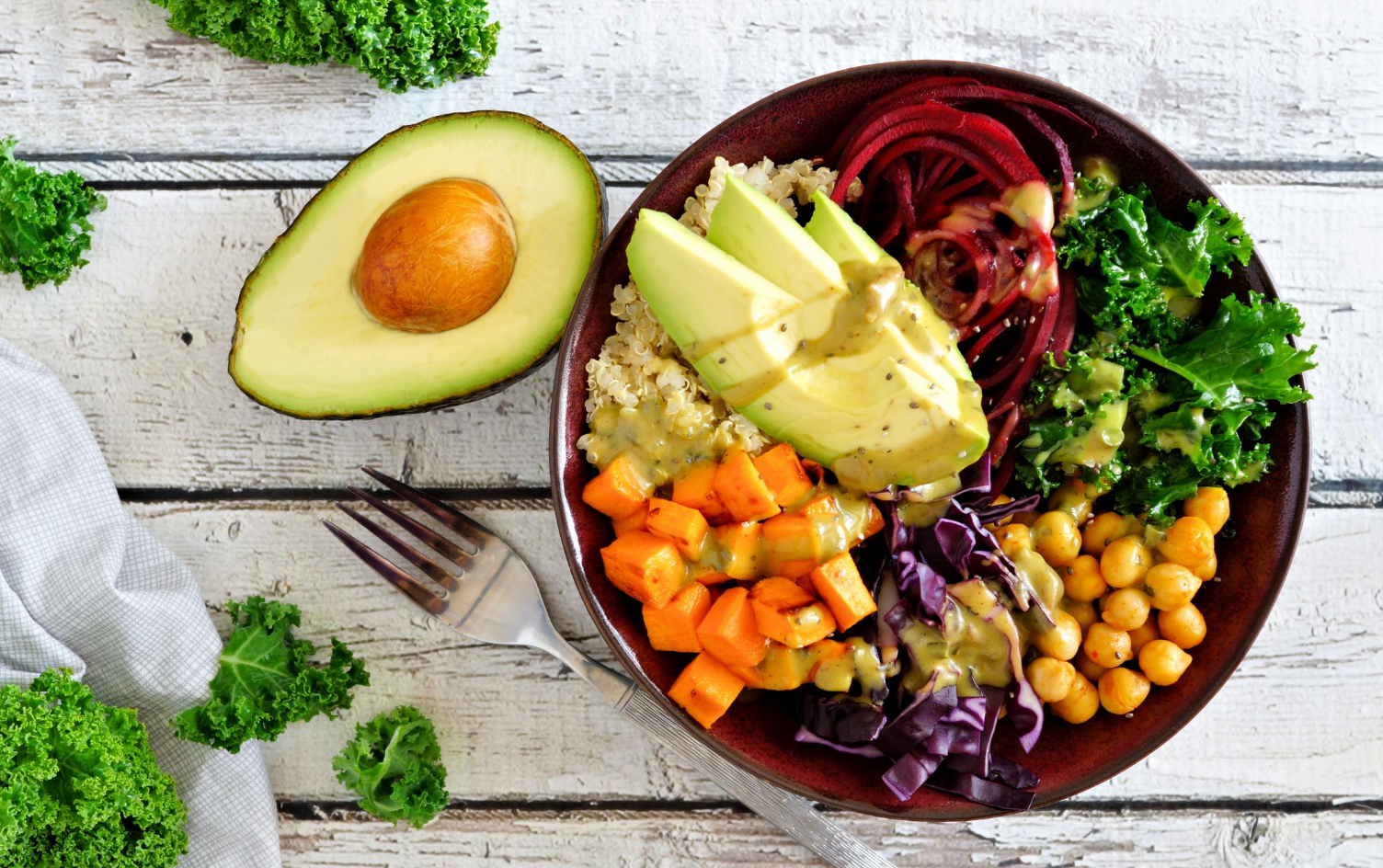Who’s ready for National Nutrition Month? If it’s not on your radar, it should be! National Nutrition Month is an annual educational and informational campaign created by the Academy of Nutrition and Dietetics in response to growing public interest in making healthier food choices.
With spring’s focus on new beginnings, there’s no better way to celebrate the season than by making some positive changes to the foods you eat.
Why does healthy nutrition really matter? According to the CDC, people with healthy eating patterns live longer and are at a lower risk for chronic health problems like heart disease, type 2 diabetes, and obesity.1 Healthy eating also helps you to maintain your body’s everyday functionality, improve immunity, and promote a healthy weight. For instance, protein helps rebuild injured tissues and promotes a healthy immune system. Both carbs and fats fuel your body, while vitamins and minerals support many of your body’s internal processes. Vitamins A, C, and E, for example, act as antioxidants to protect your cells against toxins, and the B vitamins help you extract energy from the foods you eat. Without a healthy diet, you might be compromising many of these essential functions.
What exactly constitutes a healthy diet? It’s a way of eating that focuses on nutrient-dense foods from all of the major food groups. That includes lean protein, whole grains, healthy fats, and lots of colorful fruits and vegetables. Sound overwhelming? Here are some targeted nutrition tips to make the transition easier:
Small changes matter. Small changes can add up to make a significant difference. You don’t have to overhaul your entire diet or completely eliminate foods you enjoy to create a healthy diet. The long-term goal is to feel good, have more energy, and reduce the risk of disease. But don’t let any missteps derail you—every healthy food choice you make counts.
Try going plant-based. Research shows that people who consume a more plant-forward diet have a lower risk of chronic disease. A study published in 2019 in the Journal of the American Heart Association found that people who eat a plant-based diet have a 16 percent lower risk of developing heart disease. This may be because this way of eating tends to include more heart-healthy fiber and nutrients like potassium, while limiting intake of saturated fat and cholesterol.2 However, if you’re have trouble getting enough greens each day, try a targeted powdered green drink mix. Green veggies are high in calcium, fiber, folate, magnesium, and potassium, so what better way to get these nutrients in than with a convenient powdered drink mix? Simply mix with water or juice and you’re good to go!
Worried that you won’t get enough protein by going plant-based? Fortunately, beans, legumes, seeds, soy, and tofu are all rich plant-based sources of protein.
Focus on smaller portions. Serving sizes have expanded over the past few years—and that’s particularly in restaurants. When you are eating out, consider ordering a starter instead of an entrée. Or split a dish with a friend. And don’t “supersize” anything, as tempting as it may be. When eating at home, try to use smaller plates and think about serving sizes in visual terms. For instance, a serving of meat, fish, or chicken should be about the size of a deck of cards. A teaspoon of oil or salad dressing is close to the size of a book of matches. And one serving of bread should be equivalent in size to a CD case.
Include more healthy carbs and whole grains. To boost your energy, choose healthy, fiber-rich complex carbohydrates like whole grains. In addition to being delicious and satisfying, whole grains are rich in phytochemicals and antioxidants. Other healthy sources include beans, legumes, fruits, and vegetables. Because these carbs are digested slowly, they won’t spike your blood sugar and they tend to help you feel fuller longer.
Eat healthy fats. Good-for-you fats nourish your brain and your heart, as well as your hair, skin, and nails. The two best healthy fats are monounsaturated fats and polyunsaturated fats. Monounsaturated fats come from plant oils like peanut oil or olive oil and foods like avocados, nuts, and seeds. Polyunsaturated fats include omega-3 and omega-6 fatty acids. Omega-3s are found in fatty fish like salmon, herring, and mackerel, while omega-6s can be found in peanut butter, organic soybeans, and walnuts.
Take care of your bones. Calcium is one of the key nutrients your body needs in order to stay strong and healthy. It’s an essential building block for lifelong bone health in both women and men. That’s why it’s important to include calcium-rich dairy products in your diet. Good sources include milk, yogurt, and cheese. Veggies, especially leafy greens also contain calcium. Try mustard greens, collard greens, kale, romaine lettuce, cabbage, green beans, and Brussels sprouts for a healthy dose of plant-based calcium.
If you’re not used to eating a healthy diet, try making gradual changes that can help you improve the way you eat in the long run.
References
- Why Nutrition Matters. Center for Disease Control. 2021; https://www.cdc.gov/nutrition/about-nutrition/why-it-matters.html#:~:text=Good%20nutrition%20is%20essential%20in,Americans%20healthy%20acr
- Kim H, Caufield L, Garcia-Larsen V, et al. Plant-based diets are associated with a lower risk of incident cardiovascular disease, cardiovascular disease mortality, and all-cause mortality in a general population of middle-aged adults. Journal of the American Heart Association. 2019; 8: e012865.
This article is for informational purposes only. This article is not, nor is it intended to be, a substitute for professional medical advice, diagnosis, or treatment and should never be relied upon for specific medical advice.

Share this Post